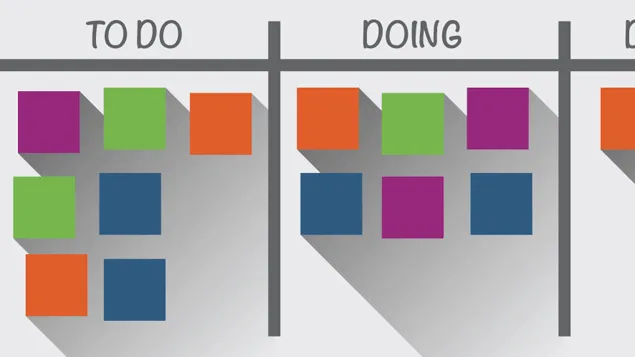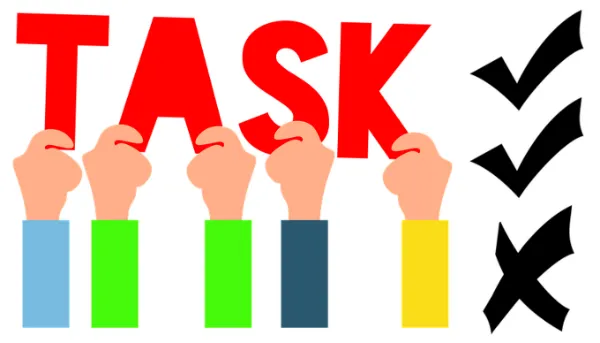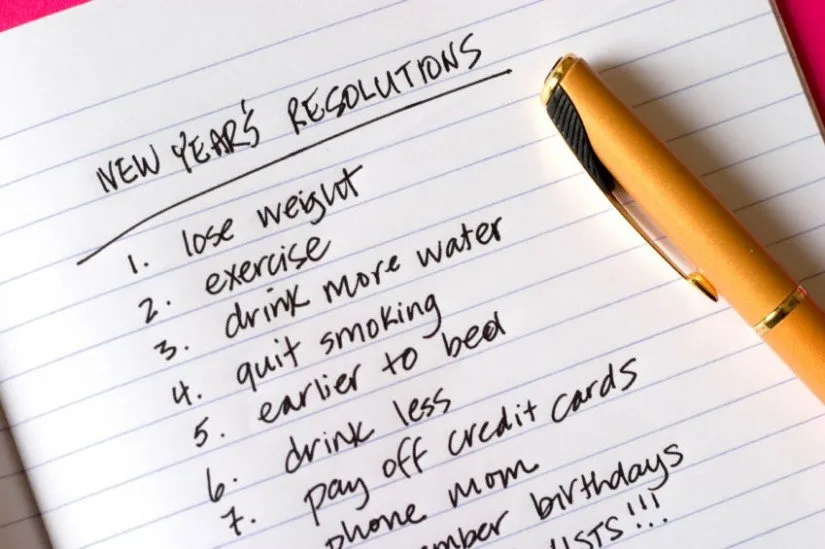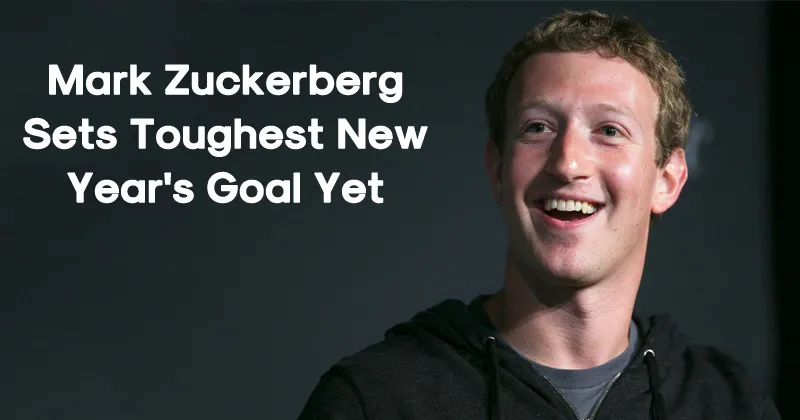It’s been almost a month into the new year, and a lot of people are starting to repeat last year's mistakes.
Let's look at a simple question first:
You are standing in a field, not far opposite you, your friend is throwing an apple at you, the speed is not that fast, and you catch the apple with your hand, what’s the probability for you to catch it?
Many people should have had this experience. If the distance is not far, the speed is not fast, the probability of catching the apple is quite high, assuming around 90%.
Now, your friend throws two apples at you at the same time. How likely are you to catch these two apples?
This time is a bit difficult, assuming that the probability drops to 50%;
Then, add another one and throw three apples at the same time. How likely are you to catch these three apples?
It was too difficult, assuming 5%;
So, one obvious fact is:
The more apples threw at you at the same time, the less likely you are to catch them at the same time; and, in order to catch more apples, you may not catch any of them;
Therefore, if you must ensure that you have at least one apple, the dumbest and most effective way is to catch it one after another.

But the reality is that many people prefer to catch three apples, five apples, and even more apples at the same time.
2019 just arrived, and I saw a lot of people have set a new year's resolutions. One of my friends, have a list of resolutions, including reading, sleep early, travel, good at speech, etc.. With so many resolutions, can they really be completed?
And it's not just my friends who write that, and most people write it that way;
Few people have the courage to write only one when they're writing New Year's resolution, even if it is the simplest and most effective way;
With a long list, it might seem to be more exciting, more inspirational, but this is not a rational approach, this list violates a very basic principle:
People's attention is limited;
What we do can be simply divided into two categories:
The first category is like walking and eating such simple tasks. These things can be done in an unconscious state, these don’t need to consume your attention, you can walk while chatting with your friends, you won’t even notice the existence of the matter.
The second category is a bit difficult, and the difference between the first category is that you have to pay attention to do this. Such as when you are walking, suddenly found that your key dropped out from your pocket, you want to find this key, you will need to keep your head down, dedicate to the heart to find it.

For the first category, you don’t need much brain power, you can do two to three these kinds of things at the same time, and able to do it well;
But if you are doing things in the second category, it will need your attention. It is difficult for you to do two things well at the same time because people's attention is limited;
But how to prove these? Daniel Kahneman provides us with a very simple way:
Walking is a very simple and easy task. When you walk with a friend, you ask him to solve a mathematics question like "23x78", and ask him for the answer immediately, he will certainly stop walking to calculate.
Why does he stop? Because to work out the answer right away is complicated, you have to focus on it, and when you focus on one task, you can't be distracted to think about other things, even if it's a very simple task like walking.
Setting every New Year's resolution more or less will consume your attention.
How can you promise to do everything well when you divide your attention into three to five parts?
We often say the goal, such as reading one hour a day, writing an article, sleep early, exercise for half an hour, if you take everything apart, it will look very simple.
But no matter how simple one task is, it will also consume your attention, and when a lot of simple tasks strung up, it becomes a very difficult task to do.

Catching one apple is easy, but if you try to catch five apples at the same time, you're going to have to break down, it's such a simple principle.
And, some things it's easy to get it done, but it's hard to do it well;
For example, many people like to write a daily summary, reflect on the day, and strive to progress a little every day;
It's not too hard to write a summary of this, it takes around 10 minutes to finish, but to do it well, the really hard part about it is how can you really do it, by writing what you thought and do something to improve yourself?
If you really want to improve yourself and do it well, it means that in addition to writing a summary of 10 minutes, you have to spend more time and attention to focus on this matter, to supervise yourself to complete the matter, to supervise yourself not to make the same mistakes;
It's easy to write a summary, but it's hard to improve yourself;
The more tasks you arranged for yourself, the more distracted you are, the less attention you have to concentrate on one thing, the harder it is to get one thing right, and you can see that most people set a lot of New Year's resolution, there are usually only two results:
They either reluctantly completed, but the result is bad, or none of them are completed;
No matter which result, I guess, it shouldn't be the result you want right?

When it comes to New Year's resolution management, I have to talk about Zuckerberg, who sets a goal for himself every year, and crucially, there is basically only one goal, and the following is a list of his goals from 2009 to 2019:
2009: Wear a tie daily.
2010: Learn Mandarin.
2011: Be a vegetarian or eat meat only if he killed the animal himself.
2012: Code daily.
2013: Meet a non-Facebook person every day.
2014: Write a thank-you note daily.
2015: Read a book every two weeks.
2016: Build an artificially intelligent app for his home and run 365 miles.
2017: Meet someone from every US state.
2018: Focus on fixing Facebook’s platform-abuse problems.
2019: Hold a series of public discussions to discuss the future of technology in society.
Other than 2016, there was only one goal for every year, and many people wrote about their year's resolution, almost catching up with Zuckerberg's 10 years of resolutions;
Set only one goal, Zuckerberg uses his focus to the extreme. If you can focus on one thing, you can get things done to the maximum, and do it well.
Being greedy is really not a good thing, people's attention is limited, it is difficult to do a few difficult things at one time and also do it well.
If you really want to achieve your New Year's resolutions, you can cross them off as much as you can, and the more you cross, the better. It's best to have only one left, and every goal you cross out will greatly enhance your happiness, just as you throw away a psychological burden.
As I said at the beginning, in the matter of achieving the goal, just like catching the apples, one of the dumbest and most effective ways is to:
At a point in time, the fewer things you do, the higher the success rate.


Posted from my blog with SteemPress : http://walkinharmony.vornix.blog/2019/01/28/simple-task-management-method/